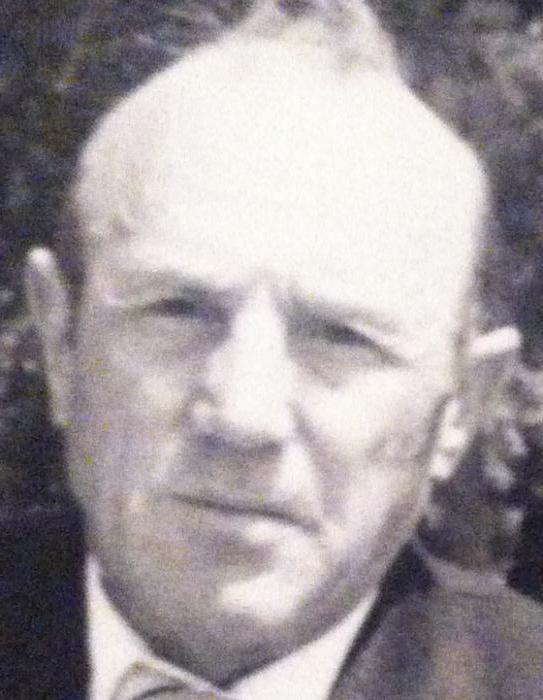Thieves in law in Russia. Traditions and "concepts"
Criminal groups in Russia have their ownspecificity. A characteristic feature is a concept such as "a thief in law". Nowhere in the world is there such a status as in our country, therefore from the point of view of crime the only thing that distinguished Russia among other countries is crime.

Thieves in the law in the early 30's - the elitecriminal world, who had certain rules of behavior and life "according to the concepts." The thief could not be called a simple pickpocket. This title had to be earned.
History
Under the old rules the thief should not havesomething personal, he belonged to the underworld and directed it. Thieves in the law in Russia in those years could not start a family or feel affection for someone. In addition, shame and betrayal on his part was considered cooperation in any form with representatives of law enforcement agencies.
However, during the war in 1945, these rulesand the traditions of the underworld have receded into the background because there was an urgent need to protect not only themselves and their environment, but also the whole country. Later, after the end of World War II, such people returned to prisons, where between them and the new thieves, as well as their confidants, began an unofficial war.
For those who came back to power, it was unacceptable to join the ranks of the military and go with them shoulder to shoulder, since officers and soldiers were equated with the police.
There are new rules that are sodiffered from the old ones, that thieves in the law in Russia could be crowned not only by some special signs and in connection with the merits before the underworld, but also for big money.

And in fact some years before crownedonly those who had previous convictions, and also earned respect both within and outside of groups. The one who did not receive due respect in a criminal environment would not be proclaimed a "thief in law" even for money.
The procedure took place under the strict guidance of the existing thieves in the law during the so-called meeting. Usually at the coronation there were two authoritated thieves in the law.
"The sick lawyer." Sanctions
Abandon the crown could only be a thief whofor health reasons did not have the opportunity to perform his direct duties. In the event that he was diagnosed in a medical institution, that is, officially, the meeting resolves the issue of admissibility to release the thief for rest. In this case, they say - "a thief in the crown," that is, the title remains, but the thief himself is not involved in the affairs, gatherings and other life of the factions.
If the thief violated any taboos or traditions,which voprinimalsya as a betrayal, the issue of his life or health solved by other thieves in the law. Criminal Russia knows quite a few cases when a citizen, venerable in appearance, ended his life by suicide or got into a fatal crash.
We tried to arrange such murders in such a way that in the future law enforcement bodies did not even have a shadow of doubt about independent withdrawal from life.
The demotion of a thief
However, death is not the only punishment forsuch people as thieves in law in Russia. For small faults could slap during a meeting or hit the ears. The slap was given for the unmotivated insult of another thief, and a blow to the ears denoted the demotion for deception and violation of thieves' laws, as well as for co-operation with the police or killing a thief-in-law.
Unbundling, contrary to the prevailing opinion, can and local assembly (by location). The regional could solve the problems of coronation and the death penalty.
The thief in the colony
Thieves in law in Russia are on specialposition among prisoners in the colonies. They are engaged in regulating the situation within the institution among their own. Only a thief can decide whether a person is right or trying to cheat. According to the prisoners themselves, a just thief will never punish in vain.

Coronation in the colony is highly respected,than on freedom. Adopting the crown means that the thief is committed to observe the law and to be just. The law here is not the one that most Russians observe, but the thieves.
In prisons, as well as infreedom, the thief monitors the "obshchak" - money, criminal cash registers. His duties include, in addition, communication and communication in any way with thieves and criminals of other regions and with foreign "colleagues."
Modern authorities
However, today from the old thieves' customsalready little is left, and modern thieves in the law live according to their own laws. You can now be crowned for a lot of money, even if the future "thief-in-law" never served a term in the colony.
During the "showdown" and "gatherings", very few peoplesolves the issue by degrading physical punishment - money is ruled by the criminal world created by modern criminal Russia. Thieves in the law, whose incidents decrease, try to solve problems remotely, hiring specially trained people for especially "dirty" work. For example, if a thief could have killed another thief for an essential infringement, then now the killers are most often attracted, capable of "clarifying the relationship" between authorities for a certain amount.
Modern thieves have become more cunning, but also vulnerable. If earlier it was strictly forbidden to communicate with representatives of the police and other people who wear a uniform, but now it's different - the criminal "concepts" have become closer, and the "criminal" authority can be seen sitting next to the colonel of the police ...
Legends of the underworld
In total there are about four thousand thieves in the law, many are no longer alive. However, the thieves of the old hardening will long be spoken with great respect not only by those whom they controlled.

Legends: Grandfather Khasan (killed in 2013), Shakro Young, Sasha Sever (defeated in 2014), Yaponchik (killed in 2009) and others, no less famous. All of them served time in the Russian colonies, as well as in correctional institutions of the countries of the former USSR, each for 20-30 years in total.
According to the thieves' laws, on the day of the funeral of anythe authoritative thief, crowned with observance of all traditions of the thieves' world, gather not only representatives of the family clan, but also numerous groups.
</ p>>






